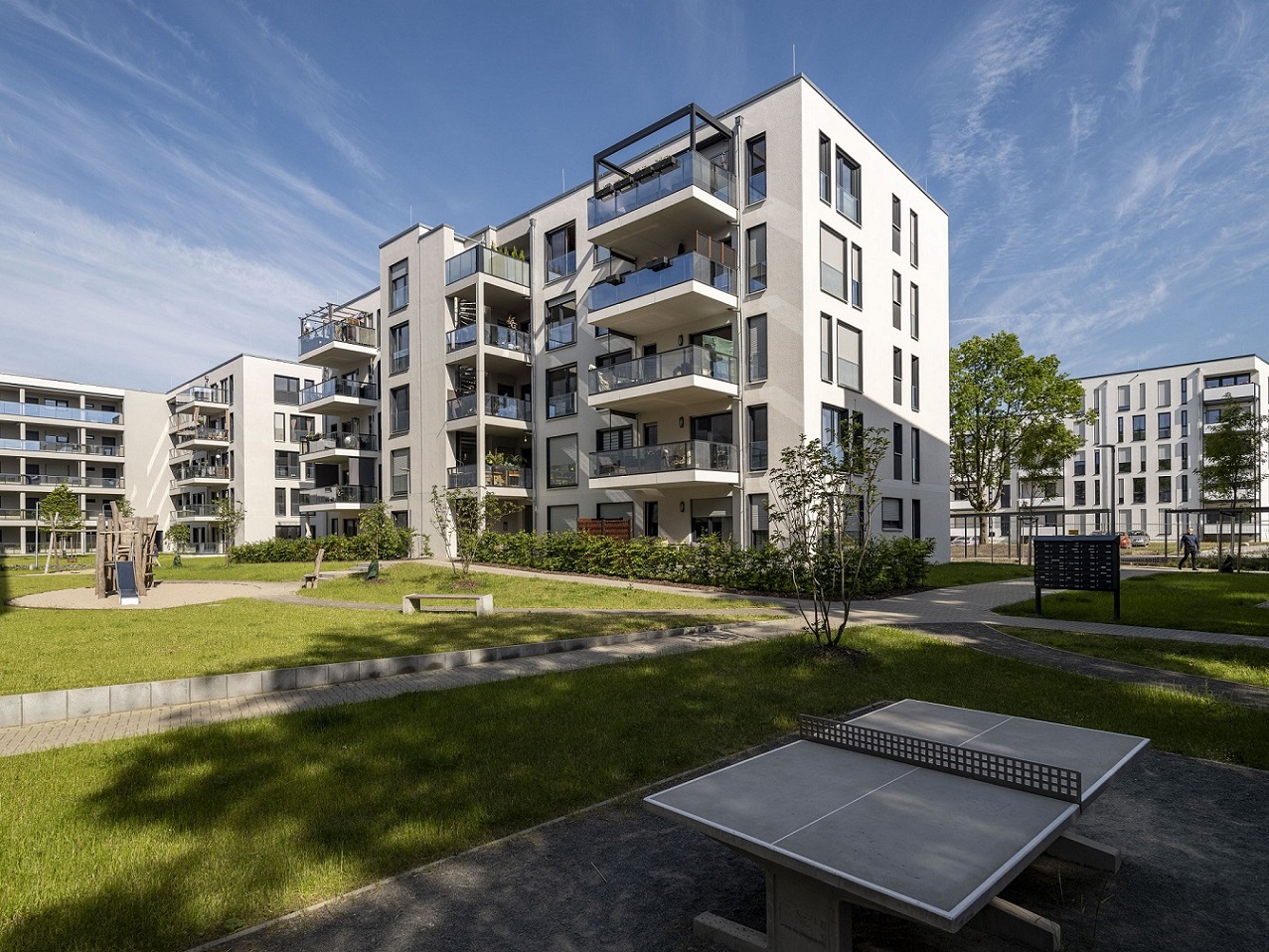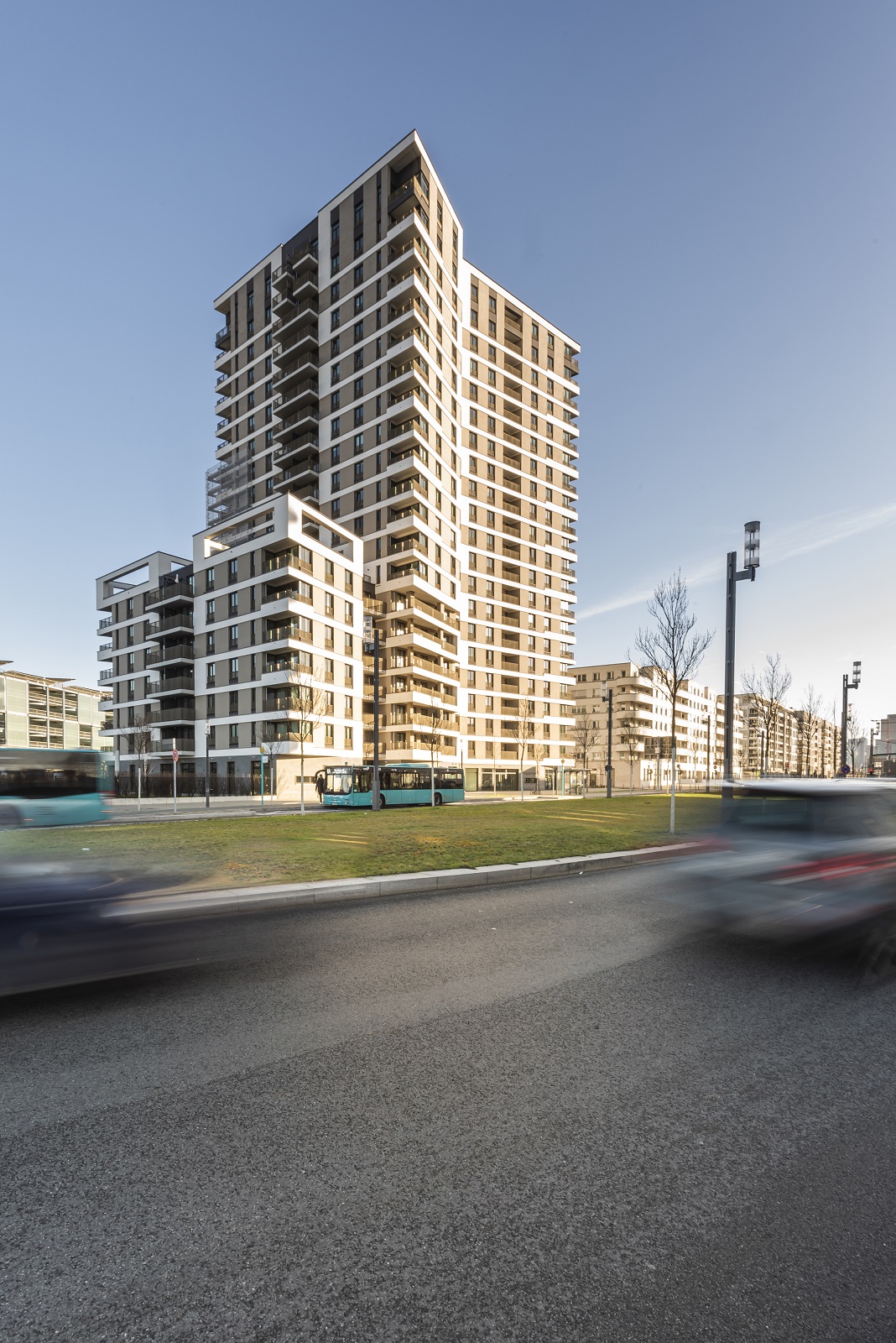RENTAL HOUSING MARKET GERMANY
The German rental market is characterized by a high density of regulation. This applies not only to the "social" rental housing market with a share of approx. 1.14 million apartments, but also to the "free" rental housing market with a volume of approx. 20 million apartments. The protection of tenants in "free" leases has also been successively extended over the years by a large number of laws. In view of the housing shortage in Germany's urban centers, further regulations are expected in the coming years.

Dr. Matthias Durst
Partner im Fachbereich Immobilien bei P+P Pöllath + Partners Rechtsanwälte und Steuerberater mbB
The social rental housing market is characterized by the fact that the apartments concerned may only be rented to people with low or medium incomes at fixed rents. In return, landlords receive subsidized loans and temporary compensation payments for the construction and maintenance of these social housing units.
The number of apartments in the "social rental housing market" has been declining sharply for many years. As a result, an increasing number of cities and municipalities have set minimum quotas for social housing in new construction projects. The following statements refer to the free rental housing market.
Tenant selection, term and termination
In the "free" rental housing market, landlords can largely decide independently on the selection of their tenants. However, anti-discrimination prohibitions apply to all landlords who rent out more than 50 apartments. The terms and termination options of rental agreements are also subject to extensive restrictions in the free rental housing market. A temporary or fixed-term lease of residential space is only permitted for subsequent owner-occupancy or implementation of significant changes to the apartment. In practice, many temporary leases fail due to insufficient explanation and/or justification of the requirements.
Short-term rentals of residential space (e.g. for Airbnb purposes) of less than 3 months are made more difficult by state and municipal regulations on the "misappropriation" of residential space. For example, an increasing number of cities and municipalities have permit requirements for short-term rentals, which may also result in fines if ignored. If residential space is used for short-term rentals, a separate building permit may also have to be obtained.
As a rule, landlords are not permitted to terminate rental agreements for residential space. Rather, landlords must prove a justified interest in termination. Termination for the purpose of increasing rent is generally excluded.
A justified interest exists, for example, in the event of serious misconduct on the part of the tenant or if the tenant is in arrears with rent payments amounting to at least two months' rent. A notice of termination issued due to the tenant's default in payment can also become ineffective retrospectively if the tenant pays the outstanding rent. A justified interest also exists in the case of planned owner-occupancy and implementation of significant changes to the apartment. High requirements apply to the presentation and justification of the respective justified interest. In individual cases, the tenant can also plead particular hardship and thus defend himself against termination.
Regulation of rent increases
In the free rental housing market, the amount of rent is generally determined by supply and demand. In ongoing lease agreements, however, the rent can only be adjusted as follows:
Increase to the local comparative rent
In principle, landlords can raise the rent for existing tenancies to the local comparative rent every 15 months (Sec. 558 of the German Civil Code (BGB)). In doing so, the landlord must base the increase either on the so-called rent index or on an expert opinion on the local price level or on three comparative offers. Rent indexes are locally applicable surveys by cities and municipalities that specify the local comparative rent on the basis of price ranges for various types of apartments and equipment features, for example, with regard to the year of construction, size, location and standard of apartments.
The rent may not increase by more than 20% within three years as a result of the rent increase. In the majority of Germany's metropolitan areas, this maximum limit has been lowered to 15%. In practice, a rent increase by submitting three comparative offers proves to be the easiest way to enforce a rent increase by the landlord. For this reason, there are political initiatives at regular intervals to abolish this option or to make rent indexes mandatory as the only instrument for a rent increase. This can be expected again after the next federal election.
Rent increase after modernization
After certain modernization measures have been carried out, the landlord can increase the annual rent by 8% of the costs incurred for the apartment in question (Sec. 559 of the German Civil Code (BGB)). However, the rent may not increase by more than EUR 3.00 per square meter within six years. If the rent is less than EUR 7.00 per square meter, the rent may not increase by more than EUR 2.00 per square meter.
Only certain modernization measures justify a rent increase. The performance of cosmetic repairs, the elimination of defects or alterations that do not improve the existing condition or create something entirely new cannot be used to justify a rent increase. Specifically, these must be measures to save energy and water or to increase the utility value or the general living conditions. Measures that become necessary due to legal requirements, such as the installation of smoke alarms, are also included.
The increase after modernization measures is linked to numerous formal requirements. The tenant may also invoke particular hardship to avert or reduce the rent increase.
Graduated and index-linked rent
Landlords and tenants can also provide for rent increases at the time the lease is signed. The agreement of a graduated rent (Sec. 557a German Civil Code (BGB)) and an index-linked rent (Sec. 557b German Civil Code (BGB)) can be considered.
In the case of a graduated rent, the contracting parties agree on fixed increase scales. The date and amount of the respective increase must be specifically stated in the rental agreement. A maximum period for graduated increases is only provided for by law in special cases.
In the case of an index-linked rent, the rent is linked to the consumer price index for Germany. In order to adjust the rent, a separate declaration by one of the contracting parties is required in each case regarding the change in the index that has occurred in the meantime.
The respective rent level must remain unchanged for at least one year in the case of both a graduated rent and an index-linked rent before a further increase can be considered.
Cap on Rent Increases (Mietpreisbremse)
With the introduction of the cap on rent increases (Mietpreisbremse), the legislator also created general guidelines for the permissible rent level at the time of conclusion of a residential rental agreement (Sec. 556d-556g German Civil Code (BGB)). Pursuant to this, the federal states can determine areas with a tight housing market in which the rent at the start of the lease may not exceed the local comparative rent by more than 10%.
In the case of a graduated rent, both the initial rent and the individual graduations must meet the requirements of the cap on rent increases (Mietpreisbremse). In the case of an index-linked rent, only the initial rent must meet the requirements of the cap on rent increases (Mietpreisbremse).
Corresponding regulations under state law currently exist for Berlin, Hamburg, Munich, Cologne, Frankfurt am Main, Stuttgart and Düsseldorf, among others, i.e. the seven largest cities in Germany. The regulations are currently limited until December 31, 2025. A further extension of the regulations is to be expected.
In certain cases, the landlord can deviate from the requirements of the cap on rent increases (Mietpreisbremse) and set a higher initial rent. This is the case if a higher rent had already been agreed upon between the parties in the previous rental relationship at the time the respective state law regulation came into force. Furthermore, the regulations on the cap on rent increases (Mietpreisbremse) do not apply if the respective apartment is a new building that was used and rented for the first time after October 1, 2014. The maximum limit of the cap on rent increases (Mietpreisbremse) also does not apply to the first letting after comprehensive modernization. The landlord must inform the tenant of the exceptions before the contract is concluded.
Milieu protection and outlook
The density of state regulation has been further increased in recent years by the expansion of milieu protection areas (Sec. 172 Para. 1 No. 2, Para. 4 German Building Code (BauGB)). These are areas in which the composition of the residential population is to be preserved. As a rule, these are "sought-after" neighborhoods with a strong influx from outside and a resulting dynamic adjustment of local rent levels. Of the seven largest cities in Germany, only Düsseldorf has not yet designated any milieu protection areas.
Milieu protection areas are subject to additional approval requirements for the modification of buildings. In most cases, the local regulations governing the milieu protection areas exclude extensive modernization or the merging of apartments. This is intended to prevent or at least mitigate future rent increases due to the improved amenities of the apartments.
In addition, the affected cities and municipalities have a pre-emptive right to purchase properties in milieu protection areas. This allows the respective municipality to enter into a purchase agreement already concluded between the seller and the buyer. In individual cases, a reduction in the purchase price can even be demanded.
Furthermore, the conversion of rented apartments into condominiums can be prohibited in milieu protection areas. Since recently, the federal states are allowed to introduce such a ban in all areas with a tight housing market, i.e., to greatly expand the areas affected.
In the state of Berlin, fixed maximum rent limits even applied to new and existing leases for a few months. The law, known as the Berlin rent freeze (Berliner Mietendeckel), was declared unconstitutional by the Federal Constitutional Court due to a lack of competence on the part of the state of Berlin. Now, demands are being made to introduce a similar law at the federal level. At present, it is unlikely that this will happen.



